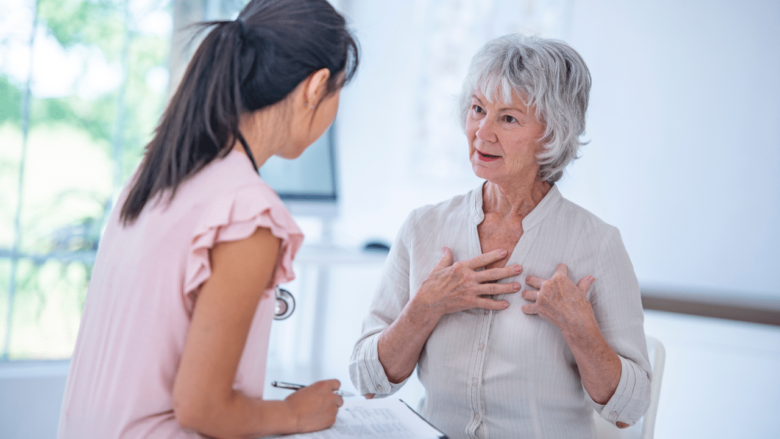Maintaining physical health is just one aspect of aging gracefully; other aspects include psychological development, maintaining emotional balance, and maintaining a positive attitude toward life’s changes. As we age, our responsibilities, routines, and relationships change. These changes can sometimes cause feelings of loneliness, anxiety, or alienation. Mental health is a general state of emotional, mental, and social well-being, not just the absence of illness.
In this article, we explore a number of new, practical approaches to helping older adults stay happy and mentally resilient. These approaches emphasize self-compassion, learning, connection, and purpose—all of which contribute to older adults’ mental and spiritual health. This article offers practical tips for improving mental health in later life, whether you’re a senior, a caregiver, or a family member seeking advice.
Create a Daily Routine:
A daily routine provides consistency, direction, and a sense of accomplishment. A clear routine can help older adults feel more grounded and less confused throughout the day, especially if they’re experiencing memory problems. A routine provides a balance of physical and mental activities, from mindfulness exercises and morning exercises to scheduled socializing and reading time. Scheduled spare time, predictable mealtimes, and medication reminders can also reduce decision fatigue. Maintaining an active lifestyle, stimulating thinking, and feeling in control all become easier with this gentle buildup. Repeated routines promote emotional balance and build resilience over time.
Maintaining Relationships and Socializing:
The desire to connect is deeply rooted in human nature and doesn’t go away with age. As life responsibilities change, social connection becomes even more important to mental health. Older adults who feel lonely and isolated are often at risk for depression and cognitive decline. Older adults feel more valued and connected when they can have meaningful interactions through phone calls, video chats, churches, organizations, community groups, or intergenerational friendships. In addition to companionship, renewing old friendships, volunteering, participating in art or literature clubs, or joining community organizations can also increase emotional support, a sense of purpose, and self-esteem.
Mental Stimulation and Lifelong Learning:
A healthy mind means being full of interests. Slowing cognitive decline and preserving neuroplasticity are two important benefits of cognitive stimulation. Playing a musical instrument, learning a foreign language, trying your hand at creative writing or art, or doing Sudoku or crossword puzzles are all beneficial activities for older adults. Taking online courses, study groups, or seminars at adult education centers can broaden your knowledge and social network. In addition to improving your memory and concentration, mental challenges are fun. Seniors who continue their education develop joy, curiosity, and a sense of self-esteem.
Practice Relaxation, Meditation, and Mindfulness:
Mindfulness techniques can increase resilience, reduce stress, and calm you down. Most seniors can use a few gentle techniques, such as progressive muscle relaxation, body scans, deep breathing, guided visualization, and seated meditation. Being in nature, whether relaxing in a garden or walking through a park, is also a form of mindfulness. Apps and audio apps for seniors offer easy-to-follow guided courses. Seniors who practice mindfulness are better able to identify their thoughts and feelings and break harmful thought patterns. Regular mindfulness practice can gradually improve mood, reduce anxiety, and promote inner peace.
Engaging Physical Activity for Mental Health:
Exercise has a significant positive effect on mental health. It reduces anxiety and depression while improving mood, energy, sleep, and cognition. For older adults, regular, light exercise without strenuous activities is sufficient. Tai chi, dance, water aerobics, chair yoga, and daily walks are all beneficial ways to improve physical and mental flexibility. These exercises can increase self-confidence, reduce stress hormones, and release endorphins. Group exercise classes can also strengthen social bonds. Older adults can protect their physical and mental health by combining physical activity with community activities.
Embracing Creativity and Purposeful Activities:
Older adults who can express themselves creatively—whether it is through storytelling, painting, crafting, or gardening—are better able to process their experiences, feelings, and memories. These activities do not require expertise; it is the creative process that counts. Cooking family recipes, caring for houseplants, or telling family stories are all examples of purposeful behavior that promotes identity and legacy. People can experience a sense of legacy and contribution through meaningful volunteer work, mentoring younger family members, or participating in intergenerational projects. When retirement is meaningful, it can be a time of giving, connection, and inner fulfillment.
Maintaining Healthy Eating and Sleeping Habits:
Sleep and nutrition have a significant impact on mood, energy, and brain function. Seniors should aim for a balanced diet with lean meats, fruits, vegetables, whole grains, and healthy fats—nutrients that contribute to healthy neurotransmitters and cognitive function. Adequate fluid intake is equally important. Restorative rest can be supported by maintaining a regular sleep schedule, going to bed at a consistent time, creating a comfortable environment, avoiding long screen times before bed, and maintaining a moderate sleep schedule. To promote resilience and mental clarity, good sleep and nutrition are the cornerstones of all other mental health techniques.
When to Seek Professional Help:
Seeking help is a sign of strength. If symptoms of anxiety, depression, or cognitive impairment persist, professional advice from a counselor, therapist, geriatric psychologist, or psychiatrist can be very helpful. Many seniors benefit from talk therapy, support groups, or taking medications as needed. Services such as community clinic support, teletherapy, and in-home counseling can help seniors access mental health care. Having regular conversations with trusted mental health professionals can aid in early identification of issues and the development of coping mechanisms before they escalate.
Using Technology to Connect and Engage:
For seniors, technology can open up new worlds and bridge gaps. Video services such as Zoom, FaceTime, or Skype make it possible to connect with loved ones in person. Social media allows seniors to join interest groups, share photos, and stay in touch with family members. Online interest networks, language platforms, and brain training apps can provide mental stimulation for seniors. Seniors can develop their creativity and learning abilities at any time by streaming music or audiobooks. The secret lies in gentle guidance, including building digital security, learning basic computer skills, and setting up user-friendly gadgets. Technology, with support, can be a tool to foster engagement, learning, and connection.
Develop Habits of Joy and Gratitude:
By consciously developing gratitude, people can shift their focus from loss to the abundance that still exists. Seniors can develop a positive and resilient mindset by engaging in simple activities such as writing gratitude in a journal, sharing morning moments with friends, or reflecting on beneficial events. Building emotional reserves involves encouraging small habits that bring joy, such as bird watching, listening to favorite music, or enjoying a favorite snack. Gratitude can bring hope, improve mental health, and, over time, help us enjoy life’s small pleasures more.
Conclusion:
Honoring the heart and mind is essential to aging gracefully. Older adults can gain emotional richness, resilience, and fulfillment through habits of routine, connection, learning, creativity, exercise, mindfulness, nutrition, and professional support. Aging is not a sign of decline but an invitation to embrace new rhythms, nurture our inner selves, and continue to grow. If we continue to be active and compassionate and enjoy being with others in our later years, our mental health and knowledge will improve.
FAQs:
1. What daily routine helps keep elders’ minds sharp?
One of the best strategies to maintain cognitive capacities and advance general mental health is to add mental stimulation into your daily routine, such as reading, doing puzzles, or learning something new.
2. How might loneliness impact seniors’ mental health, and what can help?
Seniors who experience loneliness are more likely to experience anxiety and sadness. Frequent social contact, whether via virtual calls, neighborhood groups, volunteer work, or family visits, fosters emotional stability, purpose, and connection.
3. Does meditation improve the mental health of seniors?
Indeed! Deep breathing, mindfulness exercises, and meditation can all help relax the mind, lower stress levels, and elevate mood. Long-lasting improvements in mental well-being can result from even brief daily sessions.
4. How does nutrition affect older individuals’ mental health?
Cognitive function, emotional equilibrium, and neurotransmitter function are all supported by a well-balanced diet full of antioxidants, B vitamins, and omega-3 fatty acids. Maintaining a healthy diet powers both the body and the mind.
5. How can I determine when I need expert assistance?
A mental health expert can assess underlying problems and provide support through therapy or customized therapies if ongoing depressive, anxious, or memory-related symptoms interfere with day-to-day functioning for longer than a few weeks.




